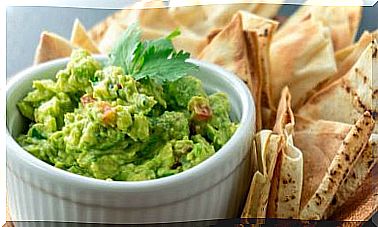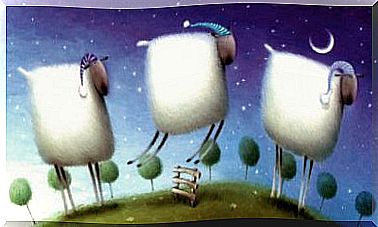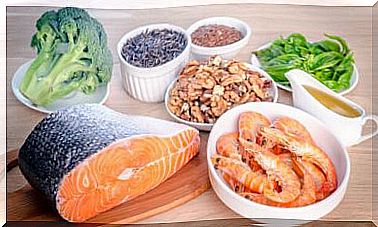Kelp: A Star Superfood?
Kelp is an algae that grows on marine surfaces and is characterized by its high content of micronutrients; specifically, it is rich in iodine and group B vitamins. In addition, it has a marked antioxidant potential that could be beneficial in helping to prevent certain diseases.
However, one must be cautious in its use. There is no scientific evidence yet on its properties and excessive consumption can have negative health consequences.
Kelp, a high fiber seaweed
We are talking about an algae that contains abundant dietary fiber. This substance is useful in improving intestinal transit and general health.
In addition, it is essential to guarantee its contribution within the framework of a weight loss diet. Fiber intake is directly linked to an increase in the feeling of satiety, as stated in an article published in the European Journal of Clinical Nutrition .
In this way, consuming this algae with some frequency can reduce the risk of eating unhealthy foods between meals. It should be noted that fiber intake is also related to a reduction in markers associated with metabolic risk, such as the following:
- The lipid profile.
- The blood glucose curve.
- Insulin resistance.
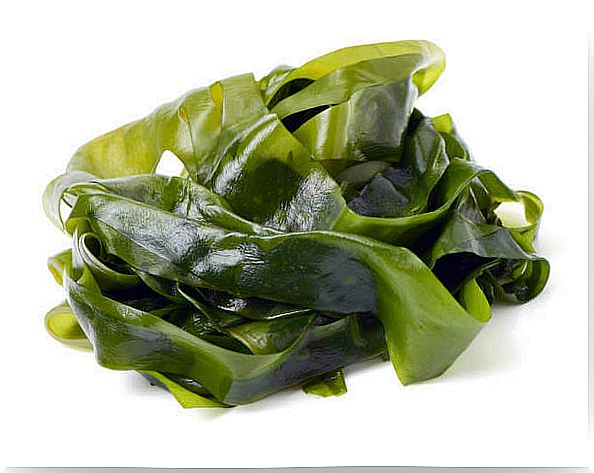
The antioxidants in kelp help improve health
Another of the kelp properties that can promote health is its antioxidant capacity. A study published in the journal Evidence-Based Complementary and Alternative Meidcine ensures that this algae has a neuroprotective power that is developed from its content of antioxidant substances.
However, few are the scientific articles that explore this ability, so there is no solid evidence in this regard, at the moment. If it is true that plant foods of marine origin are usually rich in pigments and other compounds with antioxidant properties.
However, it has not yet been possible to quantify the ability of this algae to fight against the formation of free radicals. Nor have its effects been compared to those caused by consuming other foods.
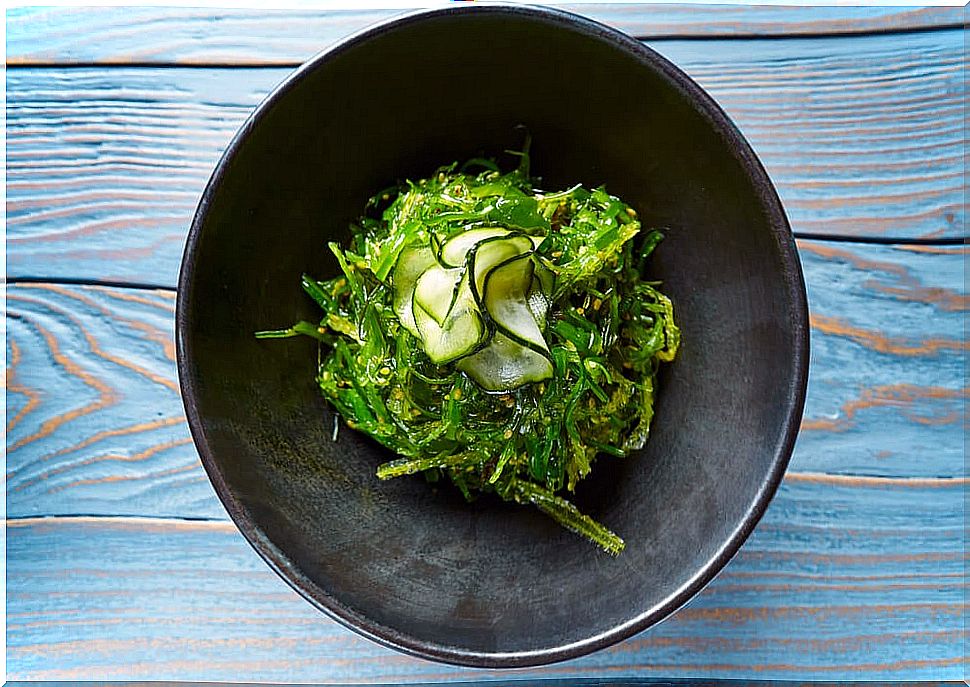
Possible contraindications
Although the consumption of this algae may be advisable, it is necessary to take certain precautions. As it is a marine product, it is susceptible to accumulating heavy metals in its composition. This means that its consumption in large doses may be contraindicated.
The ingestion of high doses of heavy metals could have certain negative consequences at the neurological level, always in the medium and long term. However, acute poisoning with these types of substances is rare.
Large doses and sustained consumption over a long period of time would be required for intoxication to occur. The metals would accumulate in the individual’s adipose tissue and later, when experiencing a sudden weight loss, they could suddenly pass into the bloodstream.
However, caution is recommended when considering the consumption of this algae. It can be positive in the right doses. However, making it a too frequent food in the diet might not be entirely good for your health, especially in the medium and long term.
Kelp, an unusual food
Kelp is a food that is rare in many cuisines. At the moment, it has not been studied in depth. Although its antioxidant capacities are suspected, more extensive investigations are needed that feel strong evidence in this regard, as well as comparative trials with other foods.
Nevertheless, this is a rich marine product in minerals and vitamins, especially the B group. Its contribution in iodine is also remarkable. It can be introduced into food, although it is not advisable to abuse it, due to its possible heavy metal content.
The best recommendation about this new food is caution. It promises to have protective properties against the development of neurodegenerative diseases. However, at the moment only models have been proposed, but there is no research that evidences these suspicions.
It is not ruled out, therefore, that something similar to what happened with spirulina years ago could happen. At first, it was thought that the algae would have multiple therapeutic uses and that it was very beneficial for health. Over time, it was shown that it was one more food that could be included in the diet, but that it did not have miraculous effects.


